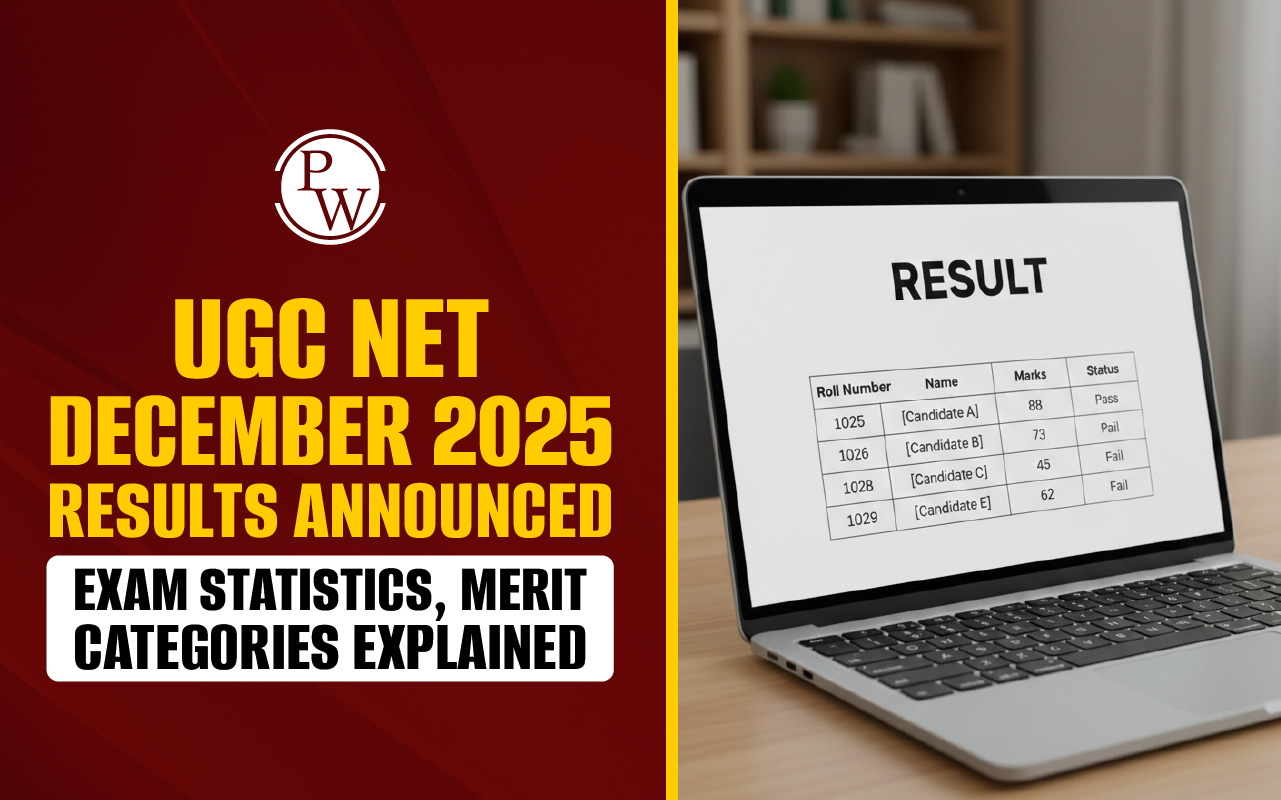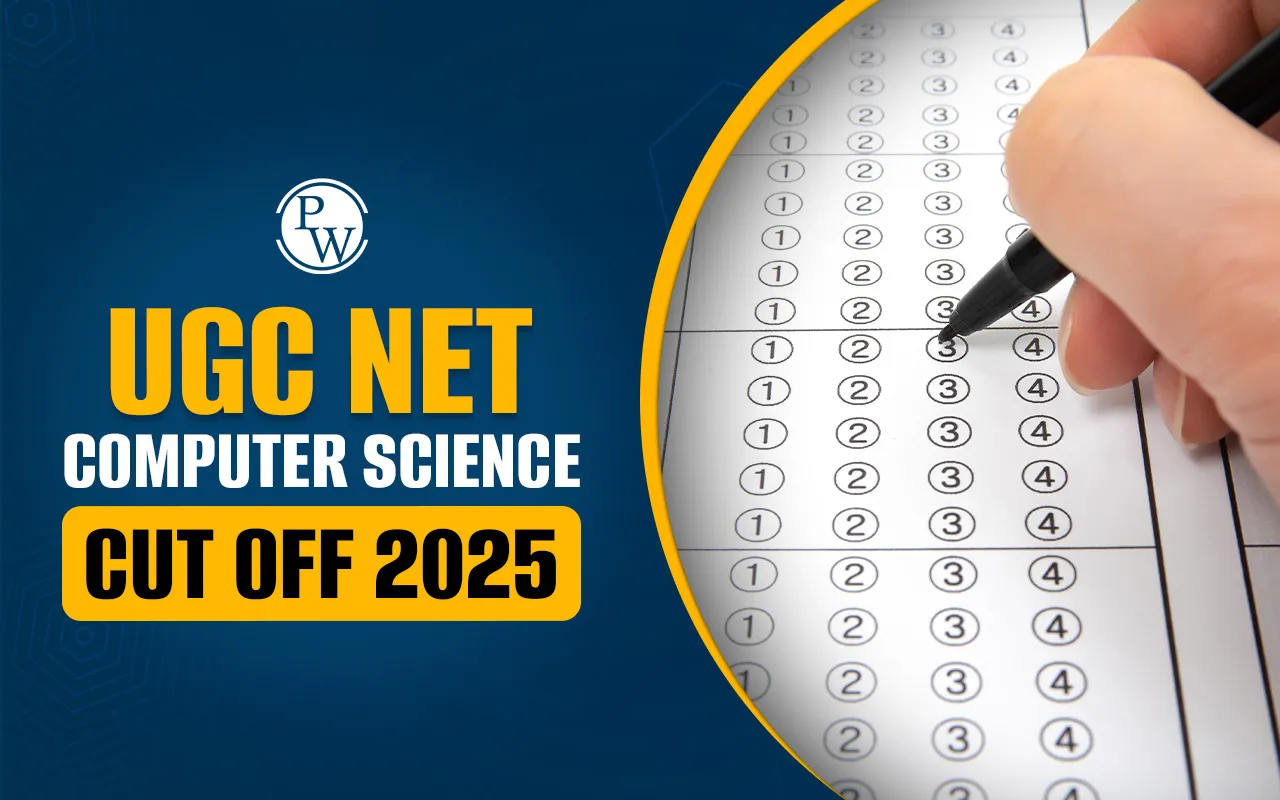
UGC NET Geography Exam Analysis 2025: UGC NET June 2025 Geography exam for 29th June Shift 2 was conducted in online CBT mode from 3 PM to 6 PM by the National Testing Agency (NTA). This UGC NET 2025 Geography Exam Analysis draws upon in‑depth student feedback and expert faculty insight. It covers the overall difficulty, section‑wise performance, good attempts, question types, and expected cut‑off trends. This comprehensive review helps aspirants refine their preparation strategy and evaluate their performance against the exam standard.
UGC NET Geography Exam Analysis 2025 Overview
UGC NET 2025 Geography Exam Analysis Overview provides a detailed insight into the exam conducted on 29th June 2025, Shift 2. Based on student feedback and expert review, this analysis highlights the overall difficulty level, important topics, and good attempts in both Paper 1 and Paper 2, helping candidates evaluate their performance and prepare for future cycles.
| UGC NET GeographyExam Analysis 2025 Overview | |
| Events | Details |
| Conducting Body | National Testing Agency (NTA) |
| Exam Name | UGC NET GeographyExam |
| Posts | Assistant Professor and Junior Research Fellowship |
| Exam Level | National |
| Exam Frequency | Twice a year |
| UGC NET Notification Release Date | 19th June, 2025 |
| UGC NET Geography Exam Date | 29th June, 2025 |
| Mode of Exam | Computer-Based Test |
| Language/Medium of Exam | English and Hindi |
| Number of Papers and Total Marks |
|
| Exam Duration | 3 hours (180 minutes) |
| Official Website | ugcnet.nta.nic.in |
UGC NET Geography Exam Analysis 2025 Shift & Timing
UGC NET Geography Exam June 2025 occurred in the evening Shift 2, spanning 3 PM to 6 PM on 29th June. Candidates sat for both papers in a unified three‑hour session, demanding effective time‑management across general and subject‑specific sections. The mid‑afternoon timing allowed for calm logistics, ensuring seamless CBT arrangements nationwide. Clear shift timings and orderly conduct helped recorded strong first‑hand responses, which were later aggregated for compiling the Geography Exam Analysis.
| UGC NET Geography Exam Analysis 2025 Shift & Timing | |
| Shift 2 | 3:00 AM to 6:00 PM |
UGC NET Geography Exam Analysis 2025 Paper 1 Difficulty Level & Good Attempts
In Paper 1, the UGC NET Geography Difficulty Level was rated easy to moderate, mirroring past cycles. Basic sections like Teaching Aptitude, Data Interpretation, and Communication remained straightforward, while Logical Reasoning and ICT sections required strategic thinking. Based on student responses, UGC NET Geography Good Attempts in Paper 1 ranged between 36–45 questions out of 50. Consistency in section‑wise structure helped candidates aiming for qualifying marks maintain steadiness across papers.
| UGC NET Geography Exam Analysis 2025 Paper 1 Difficulty Level & Good Attempts | ||||
| UGC NET Paper 1 Sections | Topics Covered | Difficulty Level | No. of Questions Asked | Good Attempts |
| Teaching Aptitude | Reflective Teaching, Cooperative Teaching, Direct Learning, Types of Counselling, Learning Process, Formative Assessment, , Bloom Tax, Swayam Prabha, MOOCs, Udemy, Edx, | Easy | 5-6 | 3-4 |
| Research Aptitude | Correlation & Co-Efficient,Sampling, Ethics of Research, Protocol, Applied Basic Qualitative, Plagiarism, Numerical, Hypothesis, Types of Research | Moderate | 4-5 | 3-4 |
| Data Interpretation | Age, Percentage, Ratio,I.S.A | Moderate to Hard | 4-5 | 3-4 |
| Reading Comprehension | Questions based on a passage | Easy to Moderate | 4 | 3-4 |
| Maths | Ratio, Proportion, Number System, CI, SI, Series, Boats & Stream, Coding, Decoding, Alphabet | Easy to Moderate | 5-6 | 4-5 |
| Logical Reasoning | Contrapositive, Converse, Analogy, Vaypati, Relevance Fallacy, Decreasing Extension, Syllogism, Experimental Research, CSOP, Equivalent, Stats, Barrier | Moderate | 4-5 | 3-4 |
| Communication |
Chacha Chaudhary, Types of Communication, Khan Academy, Communication Model, Circular Model Sequence, Barrier |
Moderate | 4-5 | 2-3 |
| Higher Education System, Governance, Polity & Admin | DU, IISS, Buddhist Education System, Soadh Ganga,Full Form, IRAHE, Commission Chronology, National Curriculum, Kothari | Moderate | 4 | 3-4 |
| People & Environment | Stage of Disaster Mangement, Eutrophication, Earthquake, Noise Pollution, Pollutants, MDG, SDG Goals, SDG Target, Water Treatment, Precipitation, Kyoto Protocol, | Easy to Moderate | 5-6 | 4-5 |
| Information & Communication Technology (ICT) | PAN, Decimal, VPN, CD ROM, Network, Security, Firmware, Server Security, MODEM, WIFI, Memory, HTML, HTTP, Virus, Tools | Moderate | 4-5 | 4-5 |
| Overall | Easy | 50 | 36-45 | |
UGC NET Geography Exam Analysis 2025 Difficulty Level
In Paper 2, the UGC NET Geography Exam Analysis revealed a moderate to hard difficulty level, especially in topics like Geomorphology, GIS, and Regional Planning. Physical geography questions were largely conceptual, while Human and Environmental Geography involved data interpretation and model‑based analysis. Climatology and Remote Sensing had a few high‑order thinking questions, challenging time‑pressed students. Overall, a robust understanding of core concepts and analytical skills were key to performing well.
| UGC NET Geography Exam Analysis 2025 Difficulty Level | ||
| Unit Name | Topics Asked | Difficulty Level |
| Geomorphology | Weathering and Mass Wasting, Plate Tectonics, Fluvial Landforms, Davisian and Penckian Models, Isostasy, Karst Topography, Geomorphic Cycles, Denudation chronology | Easy to Moderate |
| Climatology |
Structure and Composition of Atmosphere, Heat Budget, Temperature Inversion, Monsoon Mechanism, Climatic Classification (Köppen, Thornthwaite), El Niño–Southern Oscillation (ENSO), Jet Streams, Cyclones and Anticyclones |
Easy to Moderate |
| Oceanography |
Ocean Currents (e.g., Gulf Stream), Coral Reefs (Darwin’s classification), El Niño and La Niña impacts on oceans, Tides and Theories (Equilibrium and Dynamic), Salinity Distribution, Marine Resources |
Moderate |
| Environmental Geography | Sustainable Development, Environmental Impact Assessment (EIA), Environmental Movements in India (Chipko, Narmada), Man-Environment Relationship, Biodiversity Conservation, Pollution Types and Mitigation | Moderate |
| Population and Settlement Geography |
Population Growth Trends, Demographic Transition Theory, Migration Theories (Ravenstein, Zelinsky), Rural-Urban Continuum, Urban Morphology, Primate City and Rank Size Rule, Settlement Hierarchy, Population Policy in India |
Moderate - Hard |
| Economic and Regional Development Geography |
Regional Development Theories (Myrdal, Hirschman), Industrial Location Models (Weber, Losch), Agricultural Models (Von Thünen), Special Economic Zones (SEZs), Transport Networks, Resource Regions |
Moderate |
| Cultural, Social, and Political Geography | Heartland and Rimland Theories, Geopolitical Theories, Electoral Geography, Cultural Regions, Religion and Language Mapping, Race and Ethnicity in Geography, Gender and Space | Moderate - Hard |
| Geographic Thought | Dualism in Geography, Quantitative Revolution, Positivism vs Humanism, Areal Differentiation vs Spatial Organization, Contributions of Humboldt, Ritter, Hartshorne, Schaefer Debate | Moderate - Hard |
| Geographical Techniques and Methods | Remote Sensing and GIS Applications, Types of Maps and Projections, Data Representation Techniques (Diagrams, Graphs), GPS Technology, Field Surveys, Cartographic Methods, Choropleth and Isopleth Mapping | Moderate |
| Geography of India | Physiographic Divisions, Indian Monsoon, Soils and Natural Vegetation, Population Distribution, River Systems, Mineral Resources, Urbanization in India, Economic Regions, Natural Hazards (floods, droughts) | Easy to Moderate |
| Overall | Moderate | |
UGC NET Geography Exam Analysis 2025 Good Attempts
UGC NET Geography Good Attempts in Paper 2 were estimated between 65–75 questions out of 100. Students fared well on units like Population Geography, Indian Geography, and Settlement Geography due to familiar content. Technical topics such as GIS, Models, and Oceanography were slightly tougher, affecting confident attempts. Candidates who maintained accuracy in the familiar sections gained momentum, improving their chances of crossing the UGC NET qualifying marks.
| UGC NET Geography Exam Analysis 2025 Good Attempts | |||
| Unit Name | Topics Asked | No. of Questions Asked | Good Attempts |
| Geomorphology | Weathering and Mass Wasting, Plate Tectonics, Fluvial Landforms, Davisian and Penckian Models, Isostasy, Karst Topography, Geomorphic Cycles, Denudation chronology | 12–14 | 9–11 |
| Climatology |
Structure and Composition of Atmosphere, Heat Budget, Temperature Inversion, Monsoon Mechanism, Climatic Classification (Köppen, Thornthwaite), El Niño–Southern Oscillation (ENSO), Jet Streams, Cyclones and Anticyclones |
10–12 | 8–10 |
| Oceanography |
Ocean Currents (e.g., Gulf Stream), Coral Reefs (Darwin’s classification), El Niño and La Niña impacts on oceans, Tides and Theories (Equilibrium and Dynamic), Salinity Distribution, Marine Resources |
10–12 | 8–10 |
| Environmental Geography | Sustainable Development, Environmental Impact Assessment (EIA), Environmental Movements in India (Chipko, Narmada), Man-Environment Relationship, Biodiversity Conservation, Pollution Types and Mitigation | 8–10 | 6–8 |
| Population and Settlement Geography |
Population Growth Trends, Demographic Transition Theory, Migration Theories (Ravenstein, Zelinsky), Rural-Urban Continuum, Urban Morphology, Primate City and Rank Size Rule, Settlement Hierarchy, Population Policy in India |
10–12 | 8–10 |
| Economic and Regional Development Geography |
Regional Development Theories (Myrdal, Hirschman), Industrial Location Models (Weber, Losch), Agricultural Models (Von Thünen), Special Economic Zones (SEZs), Transport Networks, Resource Regions |
8–10 | 6–8 |
| Cultural, Social, and Political Geography | Heartland and Rimland Theories, Geopolitical Theories, Electoral Geography, Cultural Regions, Religion and Language Mapping, Race and Ethnicity in Geography, Gender and Space | 10–12 | 8–10 |
| Geographic Thought | Dualism in Geography, Quantitative Revolution, Positivism vs Humanism, Areal Differentiation vs Spatial Organization, Contributions of Humboldt, Ritter, Hartshorne, Schaefer Debate | 6–8 | 5–6 |
| Geographical Techniques and Methods | Remote Sensing and GIS Applications, Types of Maps and Projections, Data Representation Techniques (Diagrams, Graphs), GPS Technology, Field Surveys, Cartographic Methods, Choropleth and Isopleth Mapping | 6–8 | 5–6 |
| Geography of India | Physiographic Divisions, Indian Monsoon, Soils and Natural Vegetation, Population Distribution, River Systems, Mineral Resources, Urbanization in India, Economic Regions, Natural Hazards (floods, droughts) | 6–8 | 5–6 |
| Overall | 100 | 65-76 | |
UGC NET Geography 2025 Question Types
UGC NET Geography Exam featured a mix of MCQs: concept‑based, diagram interpretation, map reading, match‑the‑following, and case‑studies. Students encountered image‑based questions on landforms and GIS technology, data tables on demographic trends, and theory‑driven prompts about development models. This diverse format tested both knowledge depth and application ability. Strategically, candidates with practice across varied question types were better positioned to navigate unpredictability in the Geography paper format.
UGC NET Geography 2025 Expected Cut Off
Considering the observed difficulty level and good attempt patterns, the expected UGC NET Geography cut‑off for the General category is likely between 58–62%, translating to roughly 116–124 marks. OBC/EWS cut‑offs may range from 54–58%, while SC/ST categories typically have slightly lower thresholds. Final UGC NET qualifying marks will be determined through normalization and overall performance metrics. Aspirants within these scoring bands are well‑placed for selection.
UGC NET Geography Exam Analysis 2025 FAQs
What was the difficulty of Paper 2?
How many good attempts are safe in Geography?
Which Geography sections were most scoring?
Was the question pattern as expected?
What is the expected cut off?










